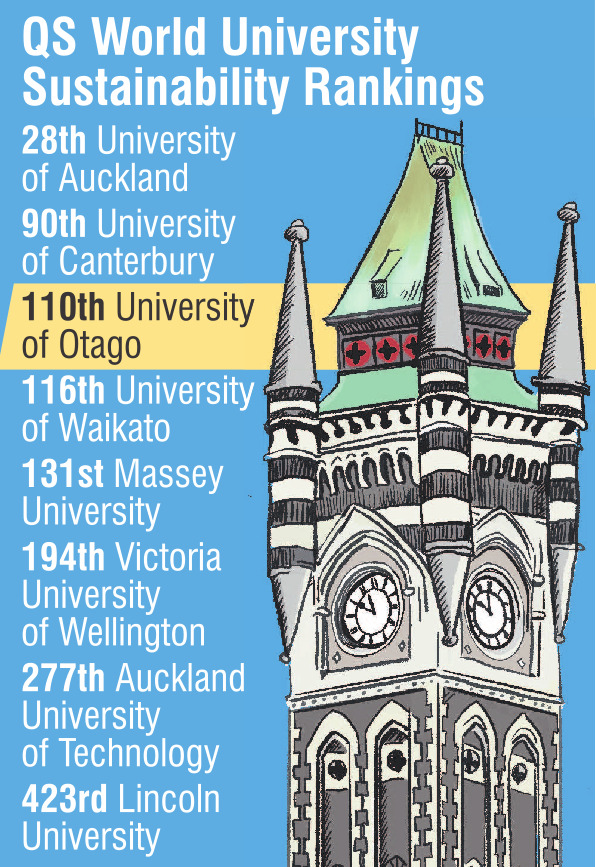
Last year, the University of Otago was 78th, but this year it has dropped to 110th.
The sustainability rankings are an annual evaluation of how universities perform on environmental and social sustainability metrics.
The methodology for determining the rankings is based on university performance across three assessment categories — environmental impact (environmental sustainability, environmental education and environmental research), social impact (equality, knowledge exchange, impact of education, employability/outcomes and health/wellbeing) and governance (ethics, hiring practices, transparency and decision-making).
University of Otago sustainability head Ray O’Brien said this year’s results reflected the increasing number of universities around the world choosing to be part of the ranking and recognising sustainability as a core part of tertiary education.
Otago’s position was still something to be very proud of, he said.
"We are part of a cluster of strong performers in New Zealand, and more widely in Australasia.
"New Zealand universities have the highest average score in this ranking of any country in the world," Mr O’Brien said.
As well as being 110th in the world in rankings, Otago was also the third-highest ranked university in New Zealand and the 15th highest in Oceania.
And in terms of its "governance" sub-score, it was ranked first in New Zealand, sixth in Oceania and 50th in the world.
"Otago is also first in New Zealand for knowledge exchange, which assesses its engagement with the community, and research being used to support policies and developing nations.

He said the university remained committed to its sustainability goals and continued to provide students with opportunities to learn about sustainability through their studies and campus life.
New Zealand’s universities as a whole fared well in the rankings.
For the first time, all eight of them placed in the top 450 in the world.
QS analytics and evaluation director and United Nations Higher Education Sustainability Initiative Action Group co-chair Leigh Kamolins said New Zealand was well known for its innovative, forward-thinking sustainability strategies.
However, research suggested the proportion of New Zealanders who thought the country should be doing more to tackle climate change had dropped to 54%, down from 64% over the past two years, he said.
"As more global peers drive ahead with their sustainability efforts and rise in the rankings, universities in New Zealand need to ensure that the entire population is on board with the sustainability mission.
"This would also benefit New Zealand’s universities’ scores in the knowledge exchange area."
In the world top 10, Sweden’s Lund University took over the top rank for the first time from the University of Toronto, which is now ranked second.
They were followed by University College London (3), the University of Edinburgh (4), University of British Columbia (5), London School of Economics and Political Science (6), Imperial College London (7), the University of New South Wales (8), McGill University (9) and the University of Manchester (10).














